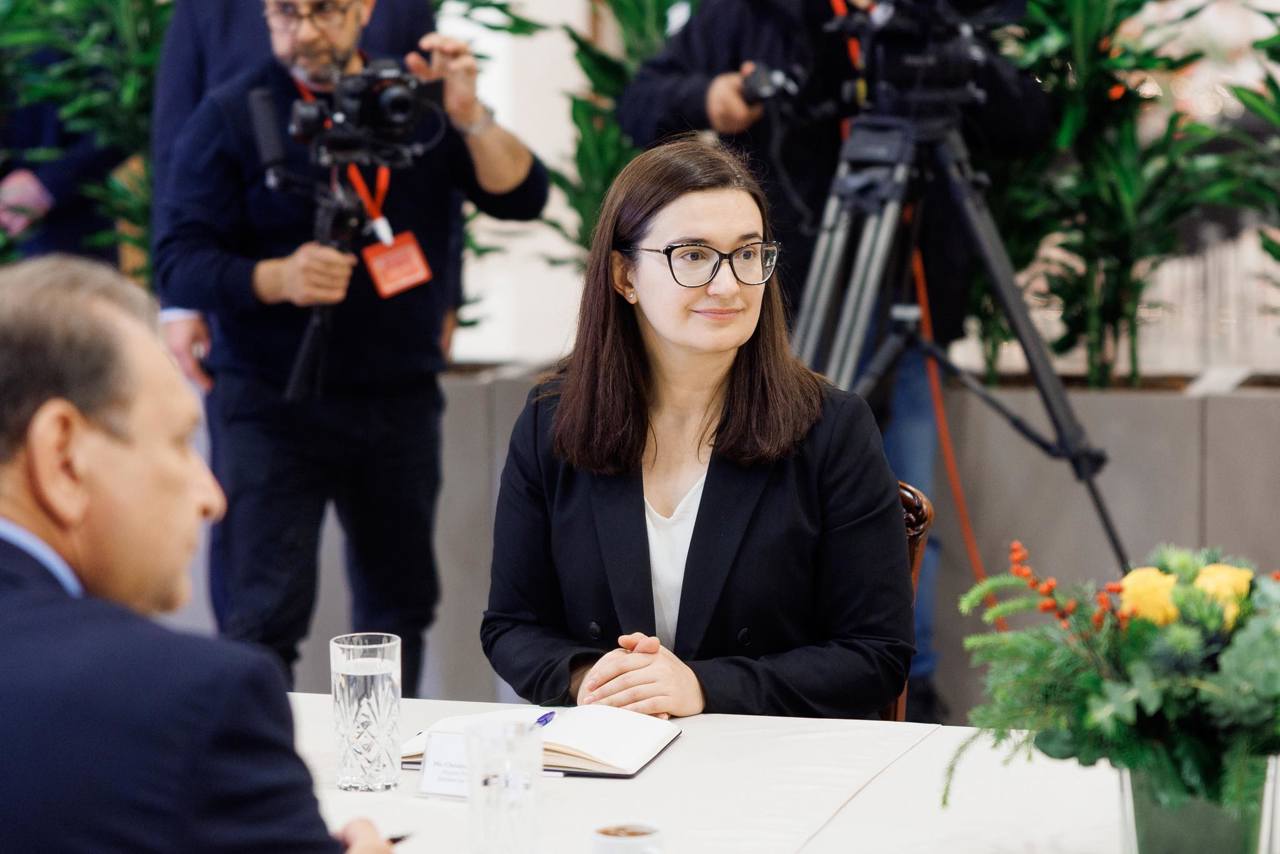Scholz's visit: Germany's shift on Moldova’s EU membership
The Significance of German Chancellor Olaf Scholz's visit to Chișinău and Moldova's prospects for EU membership with the unresolved Transnistrian issue: A review

Headlines Overview by Victoria Colesnic
The recent visit to Chișinău by German Chancellor Olaf Scholz and the implications for Moldova’s potential European Union (EU) membership, given the unresolved Transnistrian conflict and Cyprus’s example, are major topics in the press, as reviewed by Victoria Colesnic.
Historically cautious about EU expansion to include countries such as Moldova and Ukraine, Germany has reassessed its stance following Russia's invasion of Ukraine. Ahead of Chancellor Scholz's visit to Chișinău, dw.com analyzes how Berlin has opened the door to the EU for Moldova, recognizing that Moldova is likely Russia's next military target after Ukraine. Germany has consistently been a pragmatic, decisive, and honest partner to the Republic of Moldova. The publication highlights Berlin’s past criticism of corruption during the oligarchic regime led by the fugitive Vladimir Plahotniuc, noting Berlin’s remark that “it makes no sense for the EU to send money into Moldova through the front door when it is stolen through the back door.” The article explores Germany's potential role in addressing the Transnistrian issue and investing in the modernization of the National Army.
Moldova’s EU Membership Prospects Amid the Transnistrian Dispute
Newsmaker.md questions whether Moldova can join the EU with the Transnistrian conflict unresolved, drawing parallels with Cyprus. The publication notes that in the last 20 years, no country with a frozen territorial conflict has become a full EU member. In Cyprus's case, two decades after its accession, the possibility of a compromise on the island seems even less clear than it did prior to joining. The article examines whether Moldova can follow Cyprus’s path and if this scenario is advantageous for the country.
Media Withdrawal from Presidential Election Coverage
The refusal of over 70 radio and television stations to cover this year’s presidential election campaign raises concerns about the functioning of democracy in Moldova, according to Ziarul Național. Nicolae Negru’s editorial points out that the withdrawal of these media outlets is problematic for both voters seeking information and for the government, which is responsible for ensuring an electoral process that adheres to democratic standards.
Mandatory Volunteering for Distributing Promotional Newspapers
Ziarul de Gardă reports on the involvement of municipal employees in the city’s information campaign. An employee from a kindergarten revealed to journalists that she was instructed by a “supervisor” to help distribute promotional newspapers, stating she had no choice in the matter. City Hall representatives describe this as a form of volunteering, asserting that “these individuals were either nominated or volunteered to man the tents.” However, legal expert Alexandru Bot notes, “Volunteering, certainly, should not be done at the employer’s request.”
Military Registration for Migrants in Moscow
In Moscow, dozens of migrants have been summoned for military registration following raids by the Investigative Committee and the Ministry of Internal Affairs, reports IPN, citing the Russian publication kommersant. The military department of the Investigative Committee has intensified efforts to curb illegal migration and enforce military registration for individuals from former Soviet republics who have recently acquired Russian citizenship but are evading military obligations. Alexandr Bastrykin, head of the Investigative Department, recently reported that over 30,000 migrants who obtained Russian citizenship but evaded military registration have been apprehended.
Education Sector Staffing Shortage
The new school year in Moldova begins with a shortage of over 1,800 educators and teachers, according to Moldova 1. This figure represents a nearly 15 percent decrease compared to the past two years, as reported by the Ministry of Education. Authorities attribute the reduction to a decline in the number of children in rural areas and the consolidation of classes and schools in urban areas. For instance, Kindergarten “Lăstăraș” in Chișinău is facing a 40% staff shortage due to many employees being on maternity leave or opting not to continue working after three years, when their eligibility for state allowances expires, as explained by the institution’s director. The greatest shortages are observed in the municipalities of Chișinău, Comrat, and Ungheni.
Non-Banking Credit Company Accused of Abusive Clauses
A non-banking credit company owned by Russian millionaire Salman Rustamov faces accusations of abusive contractual clauses, according to mold-street.com. The publication notes that violations include breaches of legal provisions related to interest rate limits. The National Commission for Financial Markets has urged consumers of this organization, including those with closed contracts, to file complaints with the NCFM, accompanied by a copy of the contract and other relevant documents for verification of contractual terms. The National Bank reported 1,770 credit beneficiaries in the first quarter of the current year. This company has a history of violations of crediting norms.
Translation by Iurie Tataru



